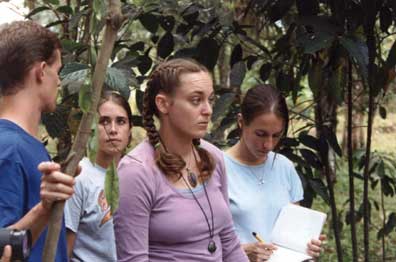
| By Admin1 (admin) (pool-151-196-165-54.balt.east.verizon.net - 151.196.165.54) on Sunday, October 26, 2003 - 12:10 am: Edit Post |
Do Peace Corps Practices leave Volunteers Vulnerable to Danger?







Take a look at the story "Peace Corps Online" published earlier this year about the Health Care that Returned Volunteers receive in the United States for illnesses and injuries that occur during their service overseas and our recommendation that the Peace Corps find out how widespread this problem is and appoint a working group to study the problem and issue recommendations for solving it. Read the story that received over eighty posts and comments from RPCVs about a problem that the Peace Corps still has not addressed at:
Quote:Based on numerous discussions with the reporter, we believe the upcoming series about Peace Corps by Russell Carollo, which is scheduled to run October 26th, will provide a misleading picture of the Peace Corps and Peace Corps Volunteer service, particularly with respect to safety and security. For example, Mr. Carollo indicated he would print that assaults and rapes have substantially increased in recent years. However, the facts are that Peace Corps data shows a significant decrease in the rate of major sexual assault events over the past six years as this type of assault event is down by more than 30 percent since 1997. As NPCA members know, Peace Corps has placed and continues to place its highest priority on the safety and security of Volunteers. Every Peace Corps director beginning with Sargent Shriver has maintained this focus and added training, procedures, and systems as region and world circumstances change. Utilizing this focus, and through its reporting and tracking systems, Peace Corps has achieved great successes in recent years in reducing major assault incidents and rapes. Unfortunately, we believe that this fact will not be represented in the article. We also understand that this story will argue that the world is too dangerous a place for Peace Corps Volunteers and will include selected and not representational anecdotes and incidents spanning the past 30 plus years. We also have great concerns about the intentions of the reporter, who stated to Kevin Quigley, among others, after Kevin informed Mr. Carollo of the many positive attributes of the Peace Corps, that many others have said the same thing. Mr. Carollo further stated that Peace Corps is an agency that has had nothing but good stories written about it over the past 40 years. He then said he was not interested in these positive remarks; he was interested in the problems.
